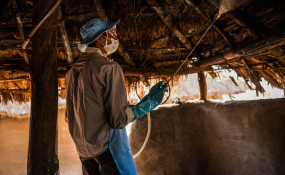 By Mohamed Issa
By Mohamed Issa
Zanzibar's anti-malaria campaign is paying off, with research showing a drop in transmission of about 94 per cent.
A study conducted
in two rural districts, North A (Unguja Island) and Micheweni (Pemba
Island) and published in the journal, BMC Medicine, attributes this low
transmission rate to a nationwide control programme and access to tools
for prevention, diagnosis and treatment including free mosquito nets.
In the study titled
From High to Low Malaria Transmission in Zanzibar -- Challenges and
Opportunities to Achieve Elimination, the researchers analysed annual
data collected from the two districts between 2003 and 2015.
They also used data
obtained from 26 public healthcare centres available in the two
districts, which span the period from 1999 to 2015.
"Human biting rates
(by mosquitoes) decreased by 98 per cent. The total malaria parasite
load decreased over 1,000-fold (99.9 per cent) between 2003 and 2015,"
the journal reads.
Zanzibar, with an
estimated population of 1.3 million, provides new evidence of the
feasibility of reaching uniquely significant and sustainable malaria
reduction (pre-elimination) in a previously high endemic region in
sub-Saharan Africa.
The archipelago was
among the first in sub-Saharan Africa to roll out wide-scale modern
control interventions with the use of artemisinin-based combination
therapy in 2003/2004, followed by long-lasting insecticidal nets, indoor
residual spraying and rapid diagnostic tests in 2005/2006.




No comments :
Post a Comment